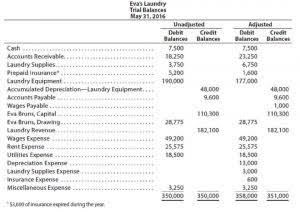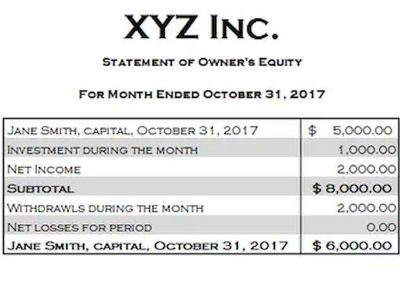
The contractor would also record the $5,000 in cash under the debit category. To record unearned revenue, you generally need to enter the amount in two places – as a credit to your unearned revenue account and a debit to your cash account. This shows that you’ve received cash but still owe the customer goods or services in return. In conclusion, the proper accounting treatment of unearned revenue is necessary for accurate representation of a company’s financial health. Deferred expenses, much like deferred revenues, involve the transfer of cash for something to be realized in the future. Deferred revenues refer to money received for goods or services to be provided to customers later, whereas deferred expenses refer to money expended for obligations not yet observed.
Deferred revenue and accrued expenses
- Suppliers will go so far as to offer companies discounts for paying on time or early.
- Unearned revenue is originally entered in the books as a debit to the cash account and a credit to the unearned revenue account.
- The company would have to repay the customer in either case unless other payment terms were explicitly stated in a signed contract.
- Outside of payroll, the accounting firm pays $1200 annually in expenses to service this contract.
- Therefore, Beeker’s Mystery Boxes would record $240 as unearned revenue in their records.
- Dividends are cash payments from companies to their shareholders as a reward for investing in their stock.
The company classifies the revenue as a short-term liability, meaning it expects the amount to be paid over one year for services to be provided over the same period. Deferrals like deferred revenue are commonly used in accounting to accurately record income and expenses in the period they actually occurred. An example of deferred revenue is a retainer fee charged by law firms. When a legal practice charges a new client a $10,000 retainer fee, it isn’t immediately recorded as revenue in its books. It records it as deferred revenue first, and only records $10,000 in revenue after the entire retainer fee has been earned. Sometimes businesses take an advance payment on a good or service meaning they’ve been paid upfront and now they need to fulfill their end of the deal.

How Do You Record Deferred Revenue in an Account?

Here, we’ll go over what exactly deferred revenue is, why it’s a liability, and how you can record it on your books. However, it converts into cash only when the seller receives the payment. Since it is an annual subscription plan, Blue IT has two options to convert its liability into earned income. In effect, we are transferring $20,000, one-third of $60,000, from https://www.bookstime.com/ the Unearned Rent Income (a liability) to Rent Income (an income account) since that portion has already been earned. Let’s start by noting that under the accrual concept, income is recognized when earned regardless of when it is collected. First, since you have received cash from your clients, it appears as part of the cash and cash equivalents, which is an asset.

Unearned Revenue Reporting Requirements
In accrual accounting, assets need equal liabilities, in the same period. Even though a payment has been received it is not considered income immediately. So it stays on your balance sheet until services is unearned revenue a current liability or products are delivered. It is good accounting practice to keep it separated in a deferred income account. Since the deliverable has not been met, there is potential for a customer to request a refund.
Step-By-Step To ASC 606 Revenue Recognition
However, even smaller companies can benefit from the added rules provided in the accrual system, so you may want to voluntarily work with accrual accounting from the start. Below you’ll find everything you need to know about unearned revenue and how it affects your small business. The timing of recognizing revenue and recording is not always straightforward. Accounting standards according to GAAP, or Generally Accepted Accounting Principles, allow for different methods of revenue recognition depending on the circumstances and the company’s industry.
Under the liability method, you initially enter unearned revenue in your books as a cash account debit and an unearned revenue account credit. The debit and credit are of the same amount, the standard in double-entry bookkeeping. The first journal entry reflects that the business has received the cash it has earned on credit. When you receive unearned revenue, it means you have taken up front or pre-payments before the actual delivery of products or services, making it a liability. However, over time, it converts to an asset as you deliver the product or service.
- While the company got cash upfront for a job not yet done when considering deferred revenue, the company is still waiting for cash for a job it has done.
- Liabilities are often oversimplified as the debt of a company that must be paid in the future.
- Consider a media company that receives a $1,200 advance payment at the beginning of its fiscal year from a customer who’s purchasing an annual newspaper subscription.
- It is the seller’s choice to prorate the refund or to charge additional fees.
- If a business entered unearned revenue as an asset instead of a liability, then its total profit would be overstated in this accounting period.
- Below, we’ll provide a listing and examples of some of the most common current liabilities found on company balance sheets.
The Impact on Financial Statements

Unearned revenue, also called deferred revenue or advanced payment, is money that has been paid to your business for goods or services that you have not yet delivered. Essentially, it’s a cash prepayment in exchange for the promise of goods or services. The adjusting entry for unearned revenue will depend upon the original journal entry, whether it was recorded using the liability method or income method. Deferred revenues are the payments received by customers for goods or services they expect to receive in the future.
